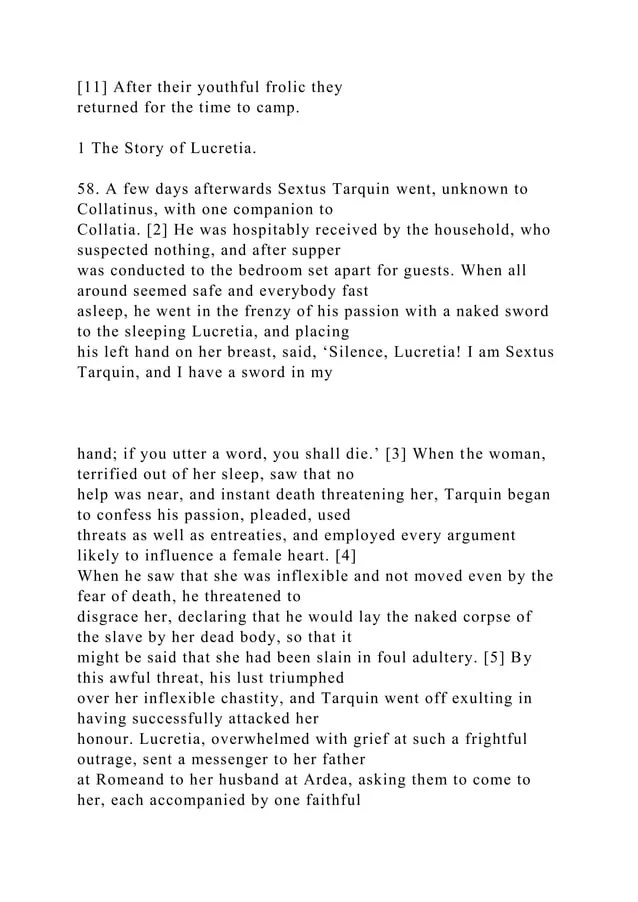When we explore the annals of Roman history, the name Livy stands out as a beacon of literary brilliance and historical insight. Known for his extensive work "Ab Urbe Condita," Livy offered a detailed narrative of Rome's past, capturing both the triumphs and tribulations of the Roman Empire. To fully appreciate his contributions, it is essential to understand when Livy was born and the historical context that shaped his writings.
Born into a world teetering on the brink of transformation, Livy witnessed the evolution of Rome from a Republic to an Empire. His life spanned a period of significant socio-political upheaval, which deeply influenced his historical perspective. As we delve deeper into Livy's biography, we uncover not only the date of his birth but also the environment that fostered his literary genius.
Understanding when Livy was born allows us to situate his work within the timeline of Roman history. This exploration not only highlights the significance of his contributions but also reveals the broader narrative of a civilization that has profoundly influenced the world. So, let us embark on this journey to discover the life and times of Livy, starting with the essential question: when was Livy born?
What Do We Know About Livy's Biography?
Livy, known formally as Titus Livius, was a prominent Roman historian who lived during the late Republic and early Empire periods. His most notable work, "Ab Urbe Condita," chronicles the history of Rome from its legendary founding in 753 BC to the early days of Augustus' reign. Livy's narrative style and dedication to historical accuracy have made his work a vital source for understanding ancient Rome.
When Was Livy Born?
Livy was born in 59 BC in the town of Patavium, which is present-day Padua in Italy. His birth during a time of political instability and civil strife in Rome would influence his perspective as a historian. Livy's writings reflect the struggles and triumphs of the Republic, offering insights into the Roman psyche during turbulent times.
What Were the Key Events During Livy's Lifetime?
Livy's life coincided with several pivotal events in Roman history, including:
- The rise of Julius Caesar and the subsequent civil wars.
- The establishment of the Roman Empire under Augustus.
- The expansion of Roman territory and influence across Europe.
- Significant cultural and social changes within Roman society.
What Personal Details Can We Learn About Livy?
To gain a better understanding of Livy, let's take a closer look at his personal details and biographical data:
| Detail | Information |
|---|---|
| Full Name | Titus Livius |
| Date of Birth | 59 BC |
| Place of Birth | Patavium, Italy |
| Occupation | Historian, Writer |
| Notable Works | Ab Urbe Condita |
| Death | AD 17 |
How Did Livy's Background Influence His Work?
Livy's upbringing in Northern Italy, away from the political chaos of Rome, provided him with a unique perspective. His education in rhetoric and philosophy allowed him to craft compelling narratives that resonated with his audience. Additionally, his experiences during a time of conflict and change informed his understanding of moral virtue and the consequences of political decisions, themes prevalent in his writings.
What Themes Are Prominent in Livy's Writings?
Livy's "Ab Urbe Condita" is rich with themes that reflect the complexities of human nature and the moral struggles faced by individuals and societies. Some prominent themes include:
- The importance of virtue and morality in leadership.
- The consequences of greed and ambition.
- The role of fate and the gods in human affairs.
- The tension between liberty and tyranny.
Why Is Livy's Work Still Relevant Today?
Livy's writings remain a cornerstone of historical scholarship, influencing generations of historians, writers, and thinkers. His ability to weave narrative with analysis offers timeless lessons about the human condition and the cyclical nature of history. As contemporary society grapples with its own challenges, Livy's reflections on power, morality, and civic responsibility continue to resonate.
How Can We Access Livy's Works?
For those interested in exploring Livy's writings, numerous translations and commentaries are available. Some popular editions include:
- The Loeb Classical Library's edition of "Ab Urbe Condita."
- Modern translations that provide context and analysis.
- Academic publications that delve into Livy's historiography.
What Legacy Did Livy Leave Behind?
Livy's legacy extends far beyond his lifetime. His work laid the groundwork for future historians and established a narrative style that remains influential in historical writing. As we ponder the question of when Livy was born, we are reminded that his contributions continue to shape our understanding of history and the lessons it offers to humanity.
In conclusion, **when was Livy born** is not just a question of historical interest; it is a gateway to understanding the life of a remarkable individual whose insights into human nature and society remain relevant. By exploring Livy's biography, themes, and lasting impact, we gain a deeper appreciation for the complexities of history and the stories that define our collective experience.
You Might Also Like
Unveiling The Journey Of Dubhashree Sahu: A Rising StarExploring The World Of 7star HD 2024: A New Era In Entertainment
Unraveling Shahid Bolsen's Net Worth: A Journey Through Success
Madison Moores: A Rising Star In The Entertainment Industry
Exploring The Fascinating World Of Subhashree Sahu Videos
Article Recommendations


